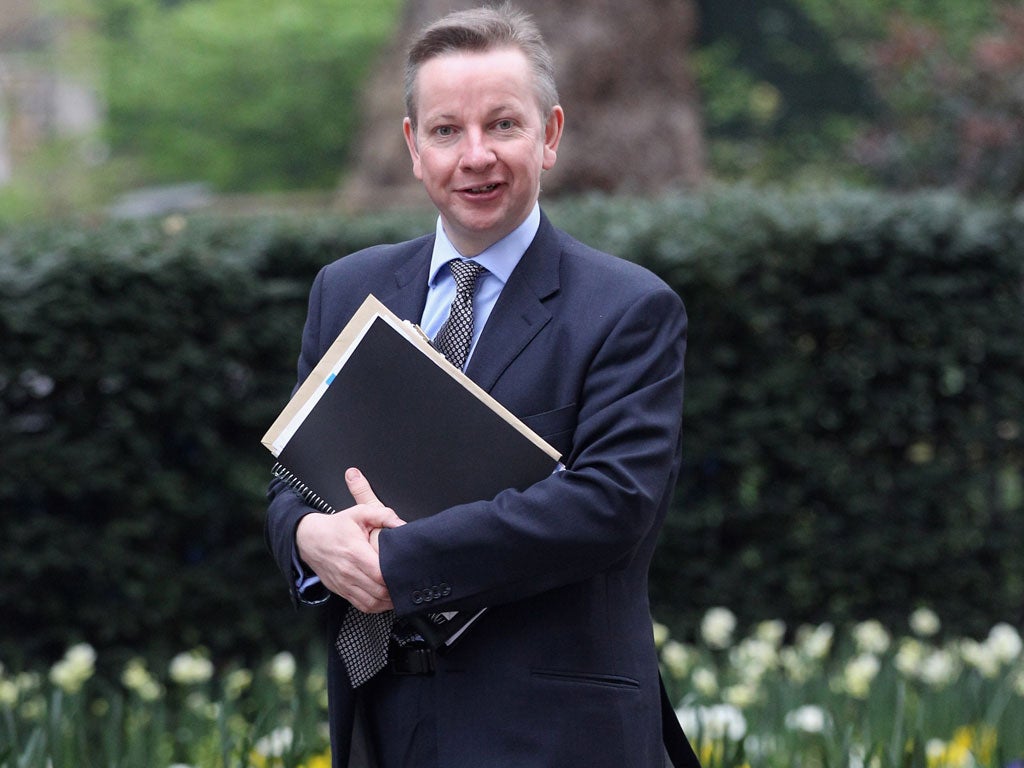Standards blitz sees 1,000 under-performing primary schools facing closure or conversion into academies

Up to 1,000 under-performing primary schools face closure or conversion into academies under a dramatic new government blitz aimed at raising standards in schools.
Education Secretary Michael Gove announced today he would be writing to all MPs representing constituencies with large numbers of schools failing to reach the Government’s minimum target of 60 per cent of pupils being fluent in English and maths by 11.
He told a seminar organised by the think-tank Politeia that 310 of the country’s worst performing primary schools had already become academies with new sponsors - but the Government had to move “further” and “faster” on its reforms.
However, he added: “There are hundreds more under-performing primary schools - many concentrated in other disadvantaged communities where we need to act.
“Children in those schools are not receiving the education they deserve. And today I want to invite the MPs in those communities to work with me to open up the education system in their areas to the new providers who can raise standards.”
Last year’s primary school league tables showed there were 1,310 schools who had failed to meet the minimum target - of which around 1,000 have not been linked to new academy sponsors. The new drive is expected to usher in the biggest expansion yet of the academies programme in the primary sector.
Mr Gove said he had singled out schools in Derby and Leicester for an initial drive, adding: “In a number of communities the local forces of conservatism have worked against reform and have thrown every possible obstacle in the path of potential academy sponsors and free school founders trying to make a difference.” In Leicester, eight schools are below the minimum target while in Derby the figure is 13.
Ministers had faced “fierce opposition” - particularly in Haringey where parents at one primary school, Downhills, opposed moves to force it to become an academy, “An alliance including ther National Union of Teachers, other local unions, the Labour MP, the Socialist Workers Party and the SWP’s best-known supporter Michael Rosen united to defend the right of children to be badly educated under council control”,” said Mr Gove.
On Derby and Leicester, he added: “In both of these areas, standards are too low, with too many primaries which are judged by Ofsted (the education standards watchdog) to be unsatisfactory or which have performed below national expectations for many years.”
Test results in the regions were “far lower than pupils and parents have a right to expect”.
Mr Gove said he was shifting the focus of the academies programme towards primary schools because many secondary schools were “impeded by the quality of the education offered in primary schools”.
He acknowledged that some parents were “actively harming” their children’s future through the way they were being brought up.
Labour MP for Nottingham North Graham Allen said schools in his constituency were seeing children arriving for primary school “unable to read or recognise the difference between a letter or a number, they arrive sometimes in nappies, unable to speak a sentence”.
“As you probably can tell, I think it’s important that we exercise a degree of restraint when we think about state intervention,” said Mr Gove, “but I think we can both agree that there are a group of children for whom the state has to intervene because they will grow up in circumstances so chaotic that it’s not just the case that they are neglected, it is the case that they are actively harmed by the failure to be in a nurturing environment where their brain can develop.”
Join our commenting forum
Join thought-provoking conversations, follow other Independent readers and see their replies
Comments
Bookmark popover
Removed from bookmarks